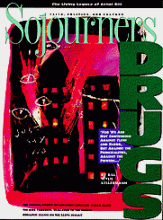In her newest book, Natural Allies: Women's Associations in American History (University of Illinois Press, 1992), Duke University professor Anne Firor Scott carefully investigates and discusses one of our society's most overlooked and underrated assets, the female voluntary group.
Most of the groups Scott mentions (including benevolent societies established in coastal towns in the 1790s, mid-1800s temperance unions, and community improvement groups of the early 20th century) had some common features: Often the wives and daughters of the communities' most powerful middle- and upper-middle-class men banded together out of a sense of "Christian duty" (though a few non-religiously oriented groups existed) to change their society as they saw fit.
By the mid-1800s the emphasis on benevolence toward individuals had shifted to a more community-focused vision. Many women volunteers, having begun to educate themselves through their organizations, started to work for an end to slavery and for women's suffrage. (The debate over which issue was of greater importance was sometimes heated and ugly.) Later women added concern for labor laws and policies regarding housing and education to their agenda.
The groups did have some problems. They tended to be classist, and integration with groups of activist black women was largely unsuccessful. Also, most of the religious-oriented groups were Protestant; Jewish and Catholic women had their own small organizations, with interaction infrequent.
Read the Full Article
